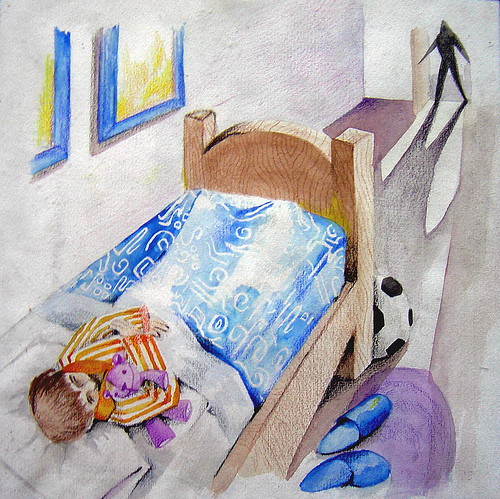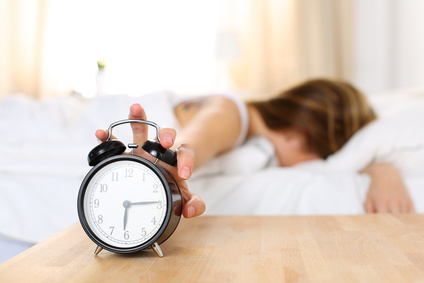
Have you ever woken up feeling out of your element? These are tough mornings when your body did not rest well the previous night. Generally, the ideal number of hours of sleep an adult aged 18 to 64 must get is between seven and nine hours. However, this may vary per individual. Others are refreshed after only six hours of uninterrupted sleep.
Your sleep troubles may be due to various reasons such as your sleeping environment, lifestyle habits or an underlying medical condition. If your sleeping problems are leaving you fatigued, irritable, and disoriented, it’s recommended that you seek medical attention. Harvard Medical School warns that insufficient sleep increases a person’s risk to obesity, diabetes, heart diseases, and hypertension. Lack of sleep can also expose an individual to accidents on the road.
Help yourself get the rest you need at night. Here are 7 superfoods for good sleep.
The Greener, The Better
Photo courtesy of Life of Pix via Pexels
Most materials you find online suggest drinking a glass of warm milk before bedtime. This boosts the sleep hormone melatonin. But what if you’re lactose intolerant? Do you have other options? Eat lots of greens loaded with calcium, which aids the brain in manufacturing melatonin.
According to a study published in the European Neurology Journal, this mineral is instrumental in attaining deep sleep. Thus, people suffering from calcium deficiency experience disturbances in sleep.
For dinner, have a kale salad. Kale is not only one of the top foods to help you sleep, it also offers a long list of other health benefits such as the lowering of cholesterol levels, preventing blood clots, and protection against cancer.
Dark Chocolates, Anyone?
Photo courtesy of Markus Spiske via Pexels
What foods should you eat to sleep better? Like the effect of coffee to health, people are partial on the impact of chocolates to sleep. Previous studies show that dark chocolates, which contain high levels of caffeine, can keep you wide awake at night.
A recent research, however, debunks this, claiming that dark chocolates “could be the key to getting a good night’s sleep. The researchers said that this bittersweet treat is rich in magnesium, a mineral that regulates the body’s circadian rhythm. Circadian rhythm or “body clock” commands the body’s sleep-wake cycle.
Dark chocolates are also a powerful source of antioxidants, contains lots of soluble fiber, and lowers blood pressure.
The Wonders of Lemongrass
Photo courtesy of yuelanliu via Pixabay
Many super foods for good sleep are available in your kitchen. Lemongrass, like chamomile, has calming effects that help you fall asleep easily at night. This herb, which is abundant in tropical regions in Asia, is rich in calcium, magnesium, phosphorous, iron, and other essential minerals. Its sedative properties help attain good sleep at night.
You can brew lemongrass tea before bedtime or drink it during dinner. Lemongrass also supports healthy cholesterol, helps cleanse the body from harmful toxic wastes, and prevents the development of cancer cells.
Carrot Juice at Bedtime? Definitely!
Photo courtesy of Pixabay via Pexels
Do you want to doze off almost immediately after hitting your comfy memory foam? Prepare a glass of carrot juice before bedtime. Researchers from Pennsylvania University suggest that people whose diets are low in alpha carotene, selenium, lauric acid, and calcium are likely to have sleeping difficulties.
Carrots are the best and most accessible source of alpha-carotene. This wonder vegetable also provides vitamins A and B6, biotin, and potassium.
Chug a Glass of Tart Cherry Juice
Photo courtesy of Unsplash via Pexels
Aside from warm milk and carrot juice, another sleep-inducing beverage you should try is tart cherry juice. This drink is found to boost melatonin levels, leading to longer and better sleep. A study showed that this beverage “produced significant reductions in insomnia severity.”
Tart cherries have relatively high melatonin content and anti-inflammatory properties that are linked to sleep modulation. Drink this healthy juice at night and get 90 more minutes of sleep!
Tart cherries’ antioxidant agents also act as protection against cancer cells and other serious diseases.
Super Tomatoes for Quality zzz’s
Photo courtesy of Tookapic via Pexels
Tomato, which is rich in the antioxidant lycopene, is a highly recommended sleep food. One thing you should keep in mind, though, is to minimize your lycopene consumption to avoid too much acidity. Acidity can result to indigestion that can keep you up until morning.
Tomatoes can also help prevent heart disease, macular degeneration, and cancer.
What’s an Ideal Meal for Good Sleep?
Photo courtesy of Pixabay via Pexels
Try wholegrain cereals with milk and sliced banana for breakfast, pasta with chicken or turkey for lunch, and kale salad and salmon for dinner.
Avoid caffeine at least four hours before bedtime. You can opt for decaffeinated coffee, herbal tea or milk instead. Before bedtime, avoid spicy meals, high-carbohydrate foods, and sugary treats such as donuts and cakes.
Other Recommended Sleep Hacks
Photo courtesy of Pixabay via Pexels
Eating the right food may not be enough to ensure you get a good night’s sleep. You should change your sedentary lifestyle as physical activities influence the body’s sleep-wake cycle. Stress can also keep you up all night, so explore ways on how to manage the stressors in your life.
Consider meditative activities such as yoga, tai-chi, and breathing exercises. Finally, make sure that your bedroom is conducive to sleeping. Clear your room of anxiety-inducing clutter. Keep the temperature cool and the lights dim. Better if you can sleep in total darkness.
Getting quality sleep is essential in maintaining good health. While you can go on days or months without exercise, your body cannot do without sleep for more than three days. There had been news about people who suffered fatal heart attacks after pulling all-nighters. If you feel tired in the morning and you need caffeine to keep you awake throughout the day, it’s likely that you’re suffering from sleep deprivation. Assess your lifestyle habits and visit your doctor.
(Aby Nicole League is a qualitative researcher and a passionate writer. She writes mostly about health, psychology, technology, and marketing. )












